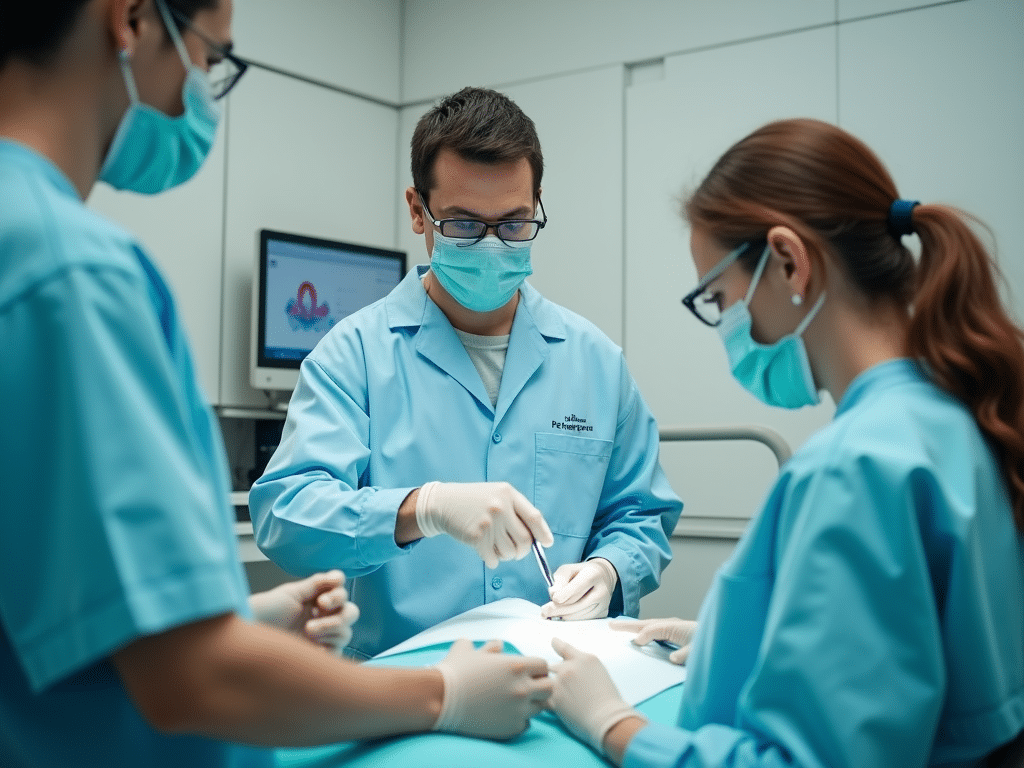Want to help people achieve their perfect smile? Becoming a dentist is an amazing career choice that combines science, art, and helping others. Let’s walk through exactly what you need to do to make this dream a reality.
| Key Takeaways | Details |
|---|---|
| Total Education | 8+ years |
| Average Starting Salary | $140,000-$180,000 |
| Required Tests | DAT, Board Exams |
| Initial Investment | $200,000-$400,000 |
| Career Satisfaction | 85% positive 🎯 |

how long does it take to become a dentist
Getting Started: The Foundation 📚
High School Game Plan
First things first – let’s talk about what you can do right now to get ahead:
Must-Take Classes:
- Advanced Biology
- Chemistry
- Physics
- Advanced Math
- Art (yes, really!)
Pro Tip: Take art classes! Many dentists say their sculpture and drawing skills helped tremendously with dental procedures.
College Preparation 🎓
Here’s what your undergraduate journey should look like:
| Year | Focus Areas | Activities |
|---|---|---|
| Freshman | Core Sciences | Shadow dentists |
| Sophomore | Advanced Sciences | Research/Volunteer |
| Junior | DAT Prep | Clinical Experience |
| Senior | Applications | Interviews |
The Pre-Dental Checklist

Medical Schools
1. Bachelor’s Degree Requirements
You’ll need these prerequisites:
- General Biology with lab
- General Chemistry with lab
- Organic Chemistry with lab
- Physics with lab
- English Composition
- Mathematics/Statistics
2. Building Your Experience Portfolio
Get hands-on experience through:
- Dental office shadowing
- Volunteer work
- Research projects
- Dental clinics
- Pre-dental clubs
Crushing the DAT (Dental Admission Test) ⭐
Test Breakdown
The DAT isn’t just another test – it’s your ticket to dental school. Here’s what to expect:
Test Sections:
- Survey of Natural Sciences
- Biology
- General Chemistry
- Organic Chemistry
- Perceptual Ability
- 3D visualization
- Spatial reasoning
- Pattern recognition
- Reading Comprehension
- Quantitative Reasoning
Study Strategy
Here’s a winning 3-month study plan:
- Month 1: Content review
- Month 2: Practice questions
- Month 3: Full-length practice tests
Applying to Dental School
The Application Process
Getting into dental school is competitive, but here’s how to stand out:
Essential Components:
- Strong GPA (3.5+ recommended)
- Competitive DAT score (20+ preferred)
- Compelling personal statement
- Quality letters of recommendation
- Relevant experience
Making Your Application Shine
- Personal Statement Tips:
- Share your unique story
- Demonstrate passion
- Show, don’t tell
- Be authentic
- Interview Preparation:
- Research each school
- Practice common questions
- Prepare thoughtful questions
- Dress professionally
Financial Planning 💰
Let’s talk money – becoming a dentist is an investment:
Expected Costs
- Undergraduate: $80,000-$200,000
- Dental School: $200,000-$400,000
- Equipment/Materials: $5,000-$10,000
Funding Options
- Federal Loans
- Direct Unsubsidized
- Grad PLUS loans
- Income-driven repayment
- Scholarships
- Merit-based
- Need-based
- Military programs
- Service commitments
Stay tuned for Part 2, where we’ll dive into dental school life, licensing requirements, and starting your career!
Remember: The path to becoming a dentist is challenging but totally worth it. Take it one step at a time, stay focused, and keep your end goal in mind. You’ve got this! 🌟
Part 2: Life in Dental School and Beyond 🎓

These Schools Special
Inside Dental School: What to Really Expect
First Two Years: Building Your Foundation
The initial phase of dental school is intense but exciting[1]:
Core Subjects:
- Dental anatomy
- Oral histology
- Pharmacology
- Oral pathology
Daily Schedule:
- Classes: 8 AM to 4 PM
- Lab work sessions
- Lunch break: 1 hour
- Study time: 2-3 hours[2]
Clinical Training Years 🦷
Hands-on Experience
Your third and fourth years focus on practical skills:
- Working with mannequins
- Treating real patients
- Learning advanced procedures
- Developing chairside manner[1]
Technology and Modern Dentistry 💻
The field is rapidly evolving with new innovations[6]:
Current Trends:
- 3D imaging
- Digital impressions
- Advanced diagnostics
- AI-assisted treatments
Required Skills:
- Digital literacy
- Continuous learning
- Adaptability to new tech
- Patient communication
Getting Licensed 📋
Basic Requirements[3][4]:
- Complete accredited dental program
- Pass National Board Dental Examination
- Pass clinical examination
- Complete state-specific requirements
State Variations:
- Texas: 24 hours annual CE
- Florida: 30 hours biennial CE
- Illinois: 48 hours every three years
Career Paths and Opportunities
Traditional Routes[5]:
- Private practice
- Group practice
- Hospital dentistry
- Academic positions
Alternative Careers[8]:
- Dental research
- Corporate consulting
- Product development
- Public health initiatives
Facing Modern Challenges
Current Industry Challenges[7]:
- Keeping up with technology
- Managing patient expectations
- Balancing work-life
- Financial pressures
Success Strategies:
- Continuous education
- Strong business skills
- Work-life balance
- Patient-centered approach
Tips for Success
- Stay Updated:
- Attend conferences
- Join professional associations
- Read dental journals
- Network with colleagues
- Business Skills:
- Learn practice management
- Understand insurance
- Master patient communication
- Develop leadership abilities
- Personal Development:
- Maintain work-life balance
- Practice self-care
- Build support networks
- Set realistic goals
Remember: Dentistry is a dynamic field that rewards those who stay curious and committed to growth. Whether you choose traditional practice or explore alternative paths, there’s always room for innovation and personal development. Keep learning, stay passionate, and make your mark in this rewarding profession! 🌟
Citations:
[1] https://clovedds.com/blog/inside-dental-school-a-glimpse-at-rigorous-training-and-student-life
[2] https://www.pacificdentalservices.com/blog/life-of-a-dental-student/
[3] https://www.amnhealthcare.com/blog/dentist/dental-licensure-requirements-by-state/
[4] https://www.ada.org/resources/careers/licensure
[5] https://academically.com/blogs/specialisations-in-dentistry-whats-next-after-bds/
[6] https://www.bolton.ac.uk/blogs/adapting-to-technological-trends-challenges-in-modern-dental-practice
[7] https://www.personaldentaloffice.com/dental-services/issues-in-dentistry-the-biggest-challenges-facing-dentists-in-2024/
[8] https://www.sydney.edu.au/medicine-health/news-and-events/2019/11/18/career-options-for-dentists-beyond-clinical-practice.html
